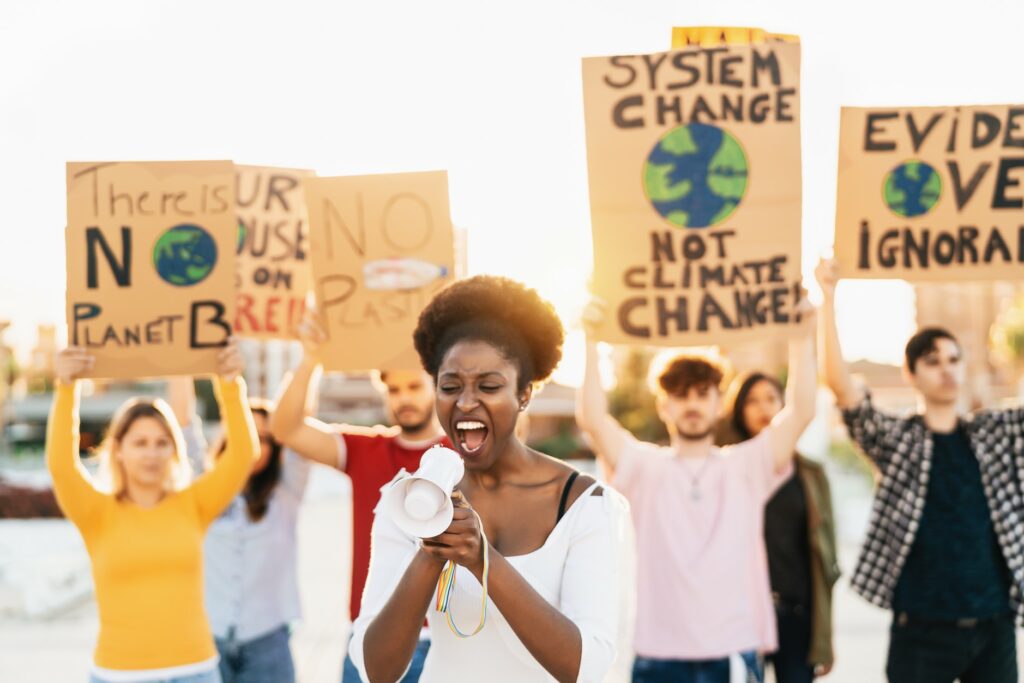

Champions of Sustainable Fashion: Who is capable of positive change
To really appreciate the need for sustainable fashion, we must first understand what conventional fashion stands for. And that is short seasons, design that prioritises aesthetics, linear approach that puts immediate profit above all else. While this model has dominated the fashion space for many years, it is now becoming blatantly obvious that it comes with a large set of problems that outweigh the benefits. The relentless pursuit of speed and profit comes at the expense of the environment, economic and social well-being.
Sustainable fashion on the other hand, a niche until recently, has always prioritised environmental and social issues over profit. It seems that now it comes with a viable alternative for every one of conventional fashion’s problems.
But when stakeholders and shareholders prioritise profit, and the existing system in the fashion industry is well rooted, who can usher in change and switch out the conventional, harmful practices for the sustainable ones?
Producers are the backbone of change. They determine the production and distribution methods and can switch to sustainable materials and technologies, incorporate circularity and ensure their employees enjoy fair wages and safe labour. Beyond that, they can promote sustainability culture to their customers and collaborators, extending their influence beyond internal operations.
Designers, as innovators, can utilise circular design, creating fashion items that are durable, reusable and recyclable, setting the foundation for sustainability in fashion.
Policy Makers have the power to enforce change on a large scale. Through regulations and laws, they can compel even unwilling companies, brands, designers and consumers to participate in sustainable practices.
Educators, shaping the minds of future producers, designers, policymakers and consumers, can instill the importance of sustainability and environmental protection early on, guaranteeing that future generations will have a deeper understanding of these critical issues.
Consumers have the most power for positive change, since their wants direct the entire industry. Staying informed is key. By choosing sustainable brands, they signal all producers to prioritise sustainability. By limiting waste, they bring down the environmental impact and shed light on the importance of reusing and recycling. By resisting the appeal of fast fashion, they put a stop to overconsumption and excessive pollution.
Even if fast fashion seems well established, the fact is its weaknesses are already showing, and the champions for sustainable fashion are more than able to finally replace these practices with ones that are good for society and the environment. The transition will not be easy, but with coordinated efforts by producers, designers, policy makers, educators and consumers, the fashion industry can continue to be a source of joy without compromising the future of the planet.

Image source: https://elements.envato.com/group-demonstrators-protesting-against-plastic-pol-HTXSVS9
Sources:
European Commission (2023). Learn what the EU does on sustainable fashion and RESet the Trend. [online] environment.ec.europa.eu. Available at: https://environment.ec.europa.eu/topics/circular-economy/reset-trend/how-eu-making-fashion-sustainable_en [Accessed 17 May 2024].
Hong, Y., Al Mamun, A., Yang, Q. and Masukujjaman, M. (2024). Predicting sustainable fashion consumption intentions and practices. Scientific Reports, [online] 14(1), p.1706. doi:https://doi.org/10.1038/s41598-024-52215-z.
Grundmeier, A.-M., Höfer, D., Zlatina Kazlacheva, Zlatin Zlatev, Blaga, M., Deniz Köksal and Jochen Strähle (2023). On the importance of fashion design within a sustainable fashion curriculum at Textile Universities in Europe – Preliminary results of the European research project fashion DIET. AIP Conference Proceedings. doi:https://doi.org/10.1063/5.0172783.
European Commission (n.d.). Sustainable consumption. [online] commission.europa.eu. Available at: https://commission.europa.eu/live-work-travel-eu/consumer-rights-and-complaints/sustainable-consumption_en.

Finanziato dall'Unione europea. Le opinioni espresse appartengono, tuttavia, al solo o ai soli autori e non riflettono necessariamente le opinioni dell'Unione europea o dell’Agenzia esecutiva europea per l’istruzione e la cultura (EACEA). Né l'Unione europea né l'EACEA possono esserne ritenute responsabili.
